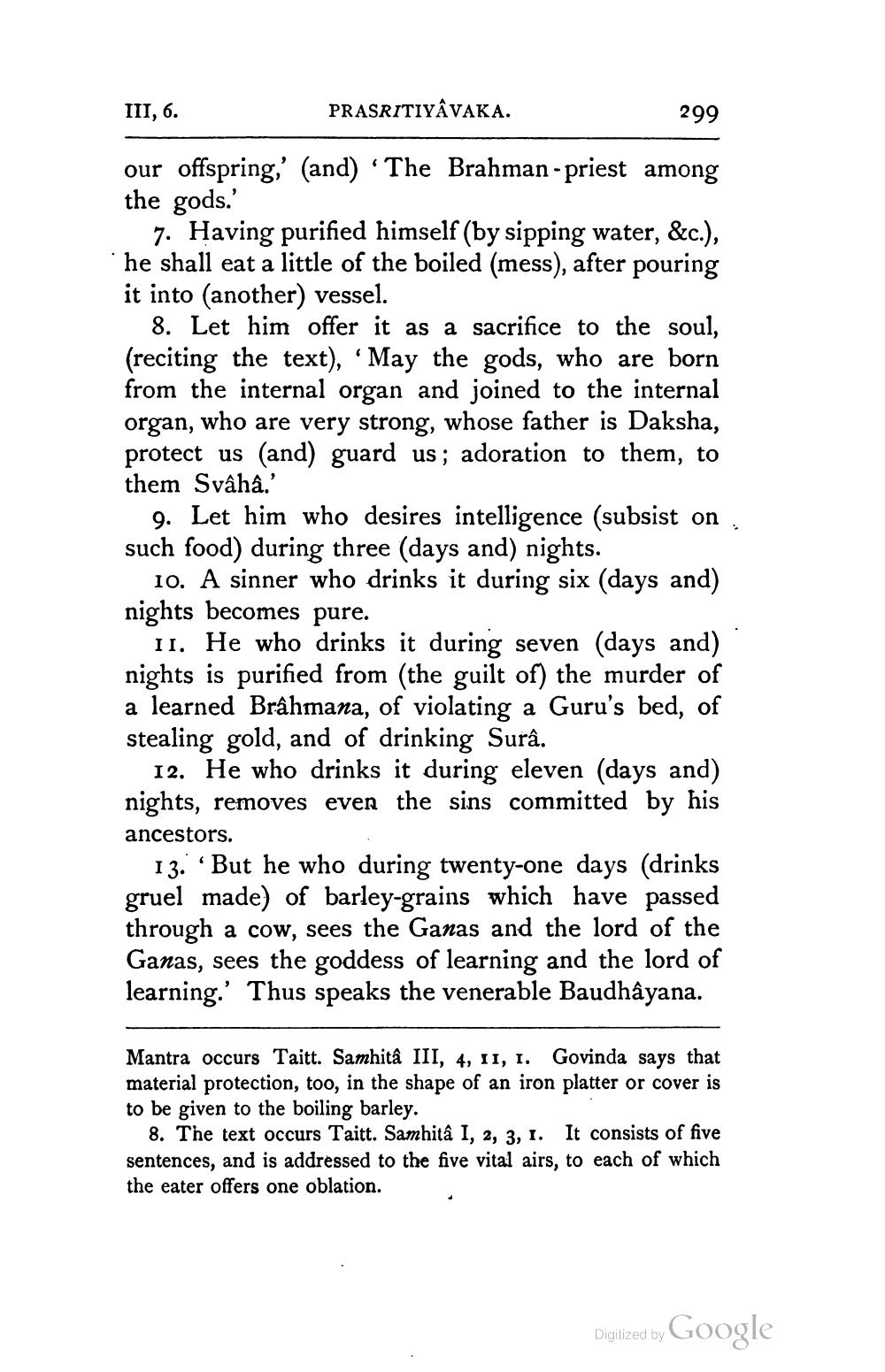________________
III, 6.
PRASRITIYÂVAKA.
299
our offspring,' (and) . The Brahman -priest among the gods.'
7. Having purified himself (by sipping water, &c.), he shall eat a little of the boiled (mess), after pouring it into (another) vessel.
8. Let him offer it as a sacrifice to the soul, (reciting the text), ‘May the gods, who are born from the internal organ and joined to the internal organ, who are very strong, whose father is Daksha, protect us (and) guard us; adoration to them, to them Svâhâ.'
9. Let him who desires intelligence (subsist on such food) during three (days and) nights.
10. A sinner who drinks it during six (days and) nights becomes pure.
II. He who drinks it during seven (days and) nights is purified from (the guilt of) the murder of a learned Brâhmana, of violating a Guru's bed, of stealing gold, and of drinking Surâ.
12. He who drinks it during eleven (days and) nights, removes even the sins committed by his ancestors.
13. But he who during twenty-one days (drinks gruel made) of barley-grains which have passed through a cow, sees the Ganas and the lord of the Ganas, sees the goddess of learning and the lord of learning. Thus speaks the venerable Baudhầyana.
Mantra occurs Taitt. Samhitâ III, 4, 11, 1. Govinda says that material protection, too, in the shape of an iron platter or cover is to be given to the boiling barley.
8. The text occurs Taitt. Samhitâ 1, 2, 3, 1. It consists of five sentences, and is addressed to the five vital airs, to each of which the eater offers one oblation.
Digitized by Google




